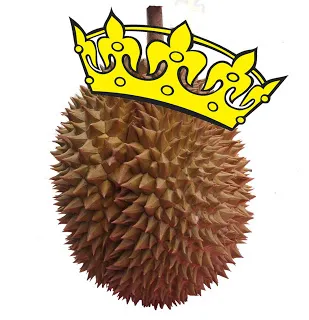Durian, the legendary “king of fruits,” is an enigmatic and divisive tropical fruit that has captured the curiosity and taste buds of adventurous food enthusiasts worldwide. Hailing from Southeast Asia, particularly Thailand, Malaysia, and Vietnam, durian has a reputation for its pungent smell, often described as a potent combination of onions, rotting flesh, and sweet overtones. However, for those brave enough to venture past the initial olfactory challenge, a world of rich, custardy goodness awaits.
Behind the notorious aroma lies a fruit with a fascinating history and a loyal following. In Vietnam, durian is known as “sầu riêng” and holds a special place in the hearts of many locals. Its rough, thorny husk encases creamy yellow flesh, which is divided into distinct pods. These pods are packed with flavor and possess a texture often likened to velvety custard.
Once you brave the initial encounter with its aroma, you’ll discover that the taste of durian is a revelation. The rich, custardy sweetness is unparalleled, with hints of caramel, vanilla, and tropical undertones. Each creamy bite is a symphony of flavors that lingers on the palate, leaving a lasting impression. It is this complex and indulgent taste that has turned many skeptics into devout durian enthusiasts.
Apart from its extraordinary taste, durian also offers numerous health benefits. It is a great source of vitamins, minerals, and dietary fiber, making it a wholesome addition to a balanced diet. Durian is rich in antioxidants, known for their potential to boost the immune system and promote overall well-being. Additionally, it contains healthy fats and is surprisingly low in cholesterol.
In Vietnam, durian is enjoyed in various forms. It is commonly eaten fresh, either on its own or as part of decadent desserts. Durian-flavored ice creams, cakes, and pastries are popular treats, showcasing the fruit’s unique and captivating flavor. Street vendors and local markets often display an array of durian for sale, allowing locals and visitors alike to indulge in this tropical delight.
Beyond its gustatory appeal, durian holds cultural significance in Vietnam. It is often shared among families and friends during festive occasions and celebrations, symbolizing abundance, prosperity, and togetherness. In Vietnamese folklore, durian is believed to possess mystical properties, and its consumption is associated with good luck and fortune.
While the pungent aroma of durian may initially deter the uninitiated, those who embrace the experience are rewarded with an extraordinary gastronomic adventure. The journey of savoring durian is not just about taste—it is an exploration of sensory boundaries and a testament to the diversity and complexity of nature’s offerings.
So, if you dare to venture beyond the smell, you will discover a world of rich, custardy goodness that will captivate your senses and leave an unforgettable impression. Let the allure of durian beckon you into a realm of indulgence and culinary discovery, where the rewards are as sumptuous as they are unique.
